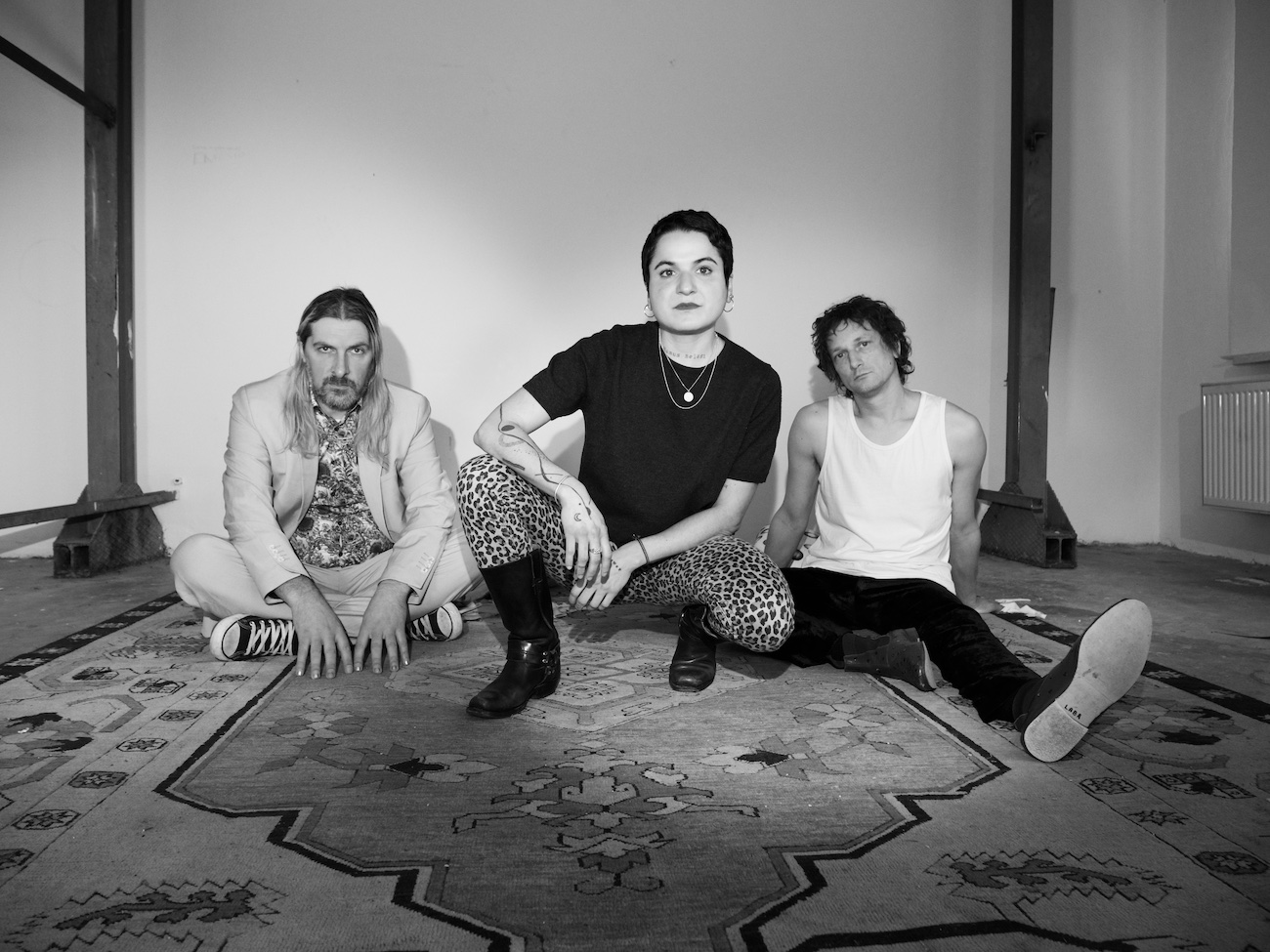Kein Entweder-oder! Sinem, die Band, verbindet türkischen Gesang mit New Wave Erinnerungen der 80er Jahre. Arabeske Rhythmen treffen auf minimalistische Synthesizerbässe, elektronische Klänge und rohe Gitarren. Musikalisch werden Grenzen aufgehoben und Räume für maximale Bewegungsfreiheit geschaffen – auf und vor der Bühne.
Sinem, die Sängerin, interpretiert klassische türkische Popsongs neu und kreierteigene Lieder. Sie stellt eine Verbindung her zu den Erfahrungen der Generation der „Gurbetçiler“, und macht sie im Hier und Jetzt erlebbar.
Sinem, das sind Sängerin Sinem, Tagar (Friends Of Gas) an der Gitarrre und Tom Wu (What Are People For?) an Schlagzeug, Loops und Produktion. „Ya-veya yok oldu!“
No either-or!
Sinem, the band, combines Turkish vocals with New Wave memories of the 80s. Arabesque rhythms meet minimalist synthesizer basses, electronic sounds and raw guitars. Musically, boundaries are broken down and spaces are created for maximum freedom of movement - on and in front of the stage.
Sinem, the singer, reinterprets classic Turkish pop songs and creates her own songs. She establishes a connection to the experiences of the „Gurbetçiler“ generation, and brings them to life in the here and now.
Sinem, that's singer Sinem, Tagar (Friends Of Gas) on guitar and Tom Wu (What Are People For?) doing drums, loops and production. "Ya-veya yok oldu!"
DATES
| Date | Country | City | Venue | ||
|---|---|---|---|---|---|
| 02.08.24 | DE | München | Import Export | ||
| 03.08.24 | DE | Augsburg | WATER & SOUND | ||
| 28.08.24 | DE | Berlin | Pop-Kultur Festival |
|
|




